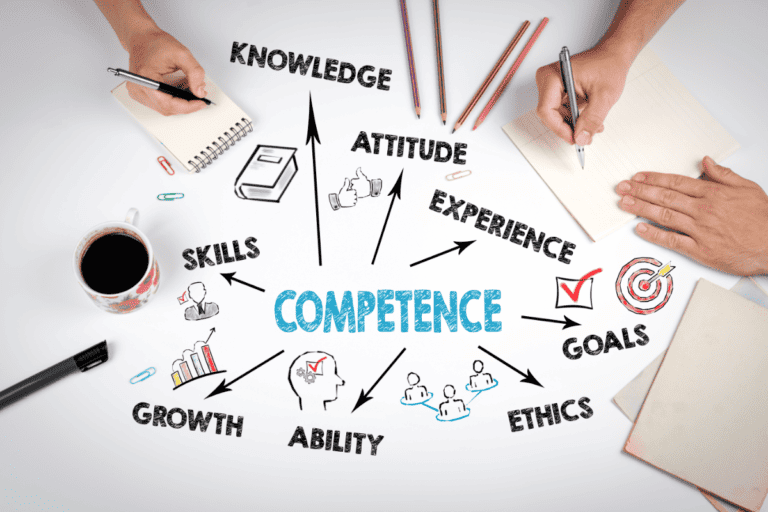Humor as a Soft Skill
Embrace humor as a soft skill for effective communication, teamwork, and leadership. It fosters a relaxed environment, breaks barriers, and enhances message delivery. Humor boosts team bonding, creativity, and conflict resolution. By incorporating humor, you can build rapport, boost morale, and encourage creativity. Utilize humor to uplift team dynamics, reduce stress, and cultivate a positive workplace culture. However, remember the importance of timing, audience context, and cultural sensitivity. Experiment with humor styles, study comedic role models, and seek feedback to develop your unique style. Discover how humor can transform workplace dynamics and relationships.
Key Takeaways
- Enhances communication and relatability.
- Builds rapport and fosters team bonding.
- Improves morale and teamwork dynamics.
- Facilitates creativity and innovation.
- Eases tension and aids in conflict resolution.
The Impact of Humor in Communication
Humor enhances communication by fostering a relaxed atmosphere that encourages engagement and connection between individuals. The impactful communication brought about by humor dynamics can break down barriers, ease tension, and create a more open dialogue. When humor is appropriately used in communication, it can help convey messages effectively, making them more memorable and relatable to the audience.
Benefits of Humor in Teamwork
When it comes to teamwork, humor plays an essential role in fostering team bonding and strengthening relationships among team members.
By infusing humor into the work environment, you can create a more relaxed atmosphere that promotes creativity and innovation.
Embracing humor in teamwork can lead to improved communication, increased morale, and ultimately, better team performance.
Team Bonding Through Humor
To foster team bonding and enhance collaboration within a group, incorporating humor can be a powerful tool that boosts morale and strengthens relationships among team members. Humor creates a positive and inclusive environment that encourages open communication and trust.
Here are some ways humor can help strengthen team bonding:
- Icebreaker Activities: Using humor as an icebreaker during team meetings or workshops can help break down barriers and create a more relaxed atmosphere.
- Shared Jokes and Memes: Sharing inside jokes or funny memes can create a sense of camaraderie and shared experiences within the team.
- Celebrating Wins with Humor: Using humor to celebrate team achievements can boost morale and create lasting memories.
- Team Building Exercises: Incorporating fun activities like a comedy workshop or laughter yoga can bring the team together in a lighthearted way.
Increased Creativity and Innovation
By integrating humor into teamwork, you can enhance creativity and innovation among team members.
Humor in problem solving can break down mental barriers, allowing individuals to think more freely and creatively.
When team members engage in lighthearted banter or share jokes, it creates a positive and relaxed atmosphere that fosters innovation through laughter.
This relaxed environment encourages team members to think outside the box, leading to the generation of creative solutions to challenges.
Additionally, increased productivity is often a byproduct of enhanced creativity and innovation within teams that incorporate humor.
Humor for Conflict Resolution
Utilizing humor tactfully in conflict resolution can defuse tension and facilitate constructive communication between parties. When humor is used appropriately, it can help break down barriers, lighten the mood, and create a more amicable atmosphere for resolving conflicts.
- Eases Emotional Intensity: Humor can help reduce the emotional intensity of a conflict, allowing both parties to approach the situation with a clearer mindset.
- Promotes Empathy: Sharing a laugh can foster a sense of empathy and understanding between conflicting parties, making it easier to see each other's perspectives.
- Encourages Open Communication: A well-placed joke or light-hearted comment can encourage open and honest communication, paving the way for finding common ground and solutions.
- Builds Rapport: Humor can help build rapport between parties, creating a more collaborative environment where resolving the conflict becomes a shared goal.
Building Rapport Through Humor
Building rapport through humor fosters stronger connections and enhances collaboration in conflict resolution scenarios. Improving relationships hinges on the ability to engage in comedic timing, knowing when to interject humor to diffuse tension or lighten the mood. By incorporating witty banter appropriately, you can create an atmosphere that encourages open communication and trust among team members. Humor acts as a powerful tool to break down barriers, allowing individuals to connect on a more personal level.
To enhance connections through humor, it's pivotal to understand your audience and tailor your jokes to resonate with them. Being mindful of cultural sensitivities and individual preferences is paramount in ensuring that humor serves its purpose of bringing people together rather than causing offense. Through shared laughter and mutual enjoyment, bonds are strengthened, making it easier to navigate challenges and work through conflicts collaboratively. When humor is used skillfully, it not only lightens the mood but also fosters a positive environment where relationships can flourish.
Humor in Leadership
As a leader, incorporating humor into your leadership style can be a powerful tool. By leading with levity, you can create a more positive work environment and boost team morale.
Connecting with your team through humor can also foster better relationships and improve overall productivity.
Leading With Levity
When incorporating humor into your leadership style, it can enhance team dynamics and foster a positive work environment. Humor in decision making allows for a more creative approach to problem-solving, encouraging out-of-the-box thinking.
Additionally, utilizing humor in problem-solving can help alleviate tension during high-stress situations, leading to more effective and collaborative solutions. By infusing your leadership with levity, you can create a workplace culture that values innovation and open communication.
Remember, a well-timed joke or a light-hearted comment can go a long way in building rapport with your team members. Embracing humor as a leader not only boosts morale but also establishes a more engaging and enjoyable work environment.
- Encourages creativity
- Alleviates tension
- Fosters collaboration
- Builds rapport
Team Morale Boost
Incorporating humor into your leadership approach can greatly uplift team morale and enhance overall productivity within the workplace.
Team spirit thrives in an environment where humor is embraced, creating a positive and cohesive atmosphere.
A well-timed joke or light-hearted moment can act as a mood booster, alleviating stress and tension among team members.
When leaders use humor appropriately, it fosters a sense of camaraderie and can improve communication and collaboration within the team.
By infusing humor into your interactions with your team, you not only make the work environment more enjoyable but also increase engagement and motivation.
Connection Through Humor
Embracing humor in your leadership style fosters strong connections and enhances team dynamics, leading to improved productivity and a positive work environment. Incorporating humor in networking can break down barriers and create a more approachable atmosphere within your team.
Cultural humor insights help you navigate diverse environments by understanding what jokes may or may not be appropriate. Using humor in leadership humanizes you to your team, making you more relatable and approachable. It can also diffuse tense situations, allowing for more open communication and collaboration.
Using Humor for Stress Management
To effectively manage stress, incorporating humor into your daily routine can be a valuable tool. Stress relief is important for maintaining mental health and positive team dynamics in the workplace. Humor has the power to lighten the atmosphere, reduce tension, and provide a different perspective on challenging situations. When you use humor effectively, it can help in coping with stressors and foster resilience.
Incorporating humor doesn't mean making light of serious issues but rather finding the lighter side to help navigate through difficulties. Sharing a funny story, engaging in lighthearted banter, or even using self-deprecating humor can all be effective ways to manage stress. Laughter triggers the release of endorphins, the body's natural feel-good chemicals, which can help alleviate stress and improve your overall mood.
Cultivating a Positive Workplace Culture
Creating a positive workplace culture involves fostering a supportive environment where team members feel valued and motivated to contribute their best efforts. Workplace positivity and humor play an essential role in shaping this culture. To cultivate a positive atmosphere, consider the following:
- Encourage Open Communication: Foster an environment where team members feel comfortable sharing ideas, feedback, and concerns openly. This promotes trust and collaboration, enhancing overall workplace positivity.
- Recognize and Appreciate: Acknowledge the efforts and achievements of team members. Recognizing their hard work not only boosts morale but also reinforces a sense of value within the team.
- Promote Work-Life Balance: Encourage a healthy balance between work responsibilities and personal life. Supporting employees in achieving this balance can lead to increased job satisfaction and overall well-being.
- Build Relationships: Encourage team building activities and initiatives that help strengthen relationships among team members. Cultivating laughter and camaraderie fosters a positive work environment where everyone feels connected and supported.
Humor in Client Interactions
Using humor strategically in client interactions can enhance rapport and communication effectiveness. When engaging with clients, incorporating humor can help create a more relaxed and positive atmosphere, making the interaction more enjoyable and memorable. Humor can be utilized to break the ice, ease tension, and build a connection with clients.
To effectively integrate humor into client interactions, consider using humor techniques such as wit, observational humor, or light-hearted anecdotes that are relevant to the conversation. Tailoring your humor to suit the client's personality and the context of the interaction is essential for successful client engagement.
Risks and Considerations of Humor
When considering humor in professional settings, it's essential to pay attention to timing and appropriateness.
The timing of a joke can greatly impact its reception, making it vital to gauge the situation before injecting humor.
Additionally, ensuring that your humor is appropriate for the context and audience is key to avoiding any potential pitfalls.
Timing in Humor
Proper timing in humor can greatly impact its effectiveness and reception, necessitating careful consideration of various risks and factors. When it comes to comedic timing and audience response, mastering the art of delivering humor with precision is essential for a successful outcome.
To guarantee punchline effectiveness and maximize the impact of your humor, keep the following points in mind:
- Understand the context and mood of your audience before delivering a joke.
- Pay attention to non-verbal cues to gauge receptiveness to humor.
- Practice your timing to create suspense and maximize the impact of the punchline.
- Be mindful of cultural differences that may influence how humor is perceived.
Appropriateness in Humor
Consideration of appropriateness in humor involves a nuanced understanding of the potential risks and considerations associated with comedic expression. Workplace boundaries play an important role in determining what's acceptable humor in a professional setting.
Comedy training can aid individuals in managing these boundaries effectively. Cultural sensitivity is paramount when considering humor, as jokes that may be appropriate in one culture could be offensive in another.
Joke selection requires careful thought to make sure that humor doesn't inadvertently cause harm or offense. By being mindful of workplace norms, cultural differences, and the impact of jokes, individuals can harness the power of humor effectively while minimizing the risks associated with inappropriate comedy.
Developing Your Humor Style
Crafting your humor style involves embracing your unique personality and understanding your audience's sensibilities. To develop a style that resonates with others, consider the following:
- Experiment with Different Types of Humor: Try observational comedy, self-deprecating jokes, wordplay, or even satire to see what suits your personality best.
- Study Comedic Role Models: Watch stand-up specials, sitcoms, or comedy movies to find inspiration and learn from established comedians.
- Practice, Practice, Practice: Crafting jokes takes time and practice, so don't be discouraged if your first attempts fall flat.
- Seek Feedback: Share your jokes with friends or colleagues to get a sense of what resonates with different audiences and refine your style accordingly.
Conclusion
To sum up, humor is a valuable soft skill that can enhance communication, teamwork, conflict resolution, leadership, workplace culture, and client interactions.
While some may argue that humor can be risky or inappropriate in certain situations, when used thoughtfully and respectfully, it can help foster positive relationships and create a more enjoyable and productive work environment.
By developing your own unique humor style, you can leverage this skill to build stronger connections and achieve success in your professional endeavors.








